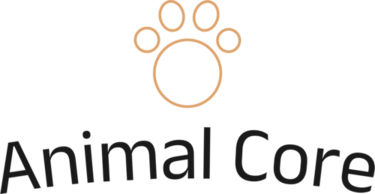Nutritional Composition of One Slice of Cheddar Cheese
1 slice cheddar cheese nutrition – Cheddar cheese, a popular dairy product, offers a variety of nutrients in a single serving. Understanding its nutritional profile can help individuals make informed choices about their diet. This section details the macronutrient and micronutrient composition of one slice of cheddar cheese, and compares it to other common cheese varieties.
Macronutrient Composition of One Slice of Cheddar Cheese
The macronutrient content of a single slice of cheddar cheese (approximately 28g) varies slightly depending on the brand and fat content. However, a general approximation provides a useful overview. The following table presents a typical breakdown:
| Nutrient | Amount (per slice) | % Daily Value (DV)* | Unit |
|---|---|---|---|
| Calories | 80-100 | 4-5% | kcal |
| Protein | 7-8 | 14-16% | g |
| Fat | 7-8 | 11-13% | g |
| Carbohydrates | 1-2 | <1% | g |
Percent Daily Values are based on a 2000 calorie diet.
Micronutrient Content of One Slice of Cheddar Cheese
Cheddar cheese is also a source of several essential micronutrients. These contribute to overall health and well-being.
One slice of cheddar cheese typically provides:
- Vitamin A: Contributes to vision and immune function.
- Vitamin D: Essential for calcium absorption and bone health.
- Vitamin K2: Plays a role in bone health and blood clotting.
- Vitamin B12: Crucial for nerve function and red blood cell formation.
- Calcium: Important for strong bones and teeth.
- Phosphorus: Supports bone health and energy production.
- Zinc: Plays a role in immune function and wound healing.
Comparison of Cheddar Cheese to Other Cheeses, 1 slice cheddar cheese nutrition
Comparing the nutritional profile of cheddar cheese to other common cheeses helps illustrate its position within the broader cheese category. The following table offers a comparison with mozzarella and Swiss cheese, based on a similar serving size (approximately one slice or 28g). Note that values may vary slightly depending on the brand and type of cheese.
| Nutrient | Cheddar | Mozzarella | Swiss |
|---|---|---|---|
| Calories | 80-100 | 70-90 | 80-100 |
| Protein (g) | 7-8 | 6-7 | 7-8 |
| Fat (g) | 7-8 | 6-7 | 7-8 |
| Calcium (mg) | 200-250 | 180-220 | 150-200 |
FAQ Section: 1 Slice Cheddar Cheese Nutrition
Is cheddar cheese good for weight loss?
In moderation, yes. It’s high in protein and calcium, which can help with satiety, but it’s also relatively high in fat and calories, so portion control is vital.
Does cheddar cheese have lactose?
Yes, cheddar cheese contains lactose, although the amount can vary depending on the aging process. People with lactose intolerance may experience symptoms after consuming it.
Can I eat cheddar cheese on a vegan diet?
Nah, mate. Cheddar cheese is made from cow’s milk, so it’s not suitable for a vegan diet.
A single slice of cheddar cheese provides a moderate source of protein and calcium, contributing to daily nutritional needs. However, a comparative analysis of its fat content necessitates consideration of alternative dairy products, such as those found in Starbucks offerings; for instance, detailed nutritional information regarding starbucks cream cheese nutrition reveals significantly higher fat and calorie density.
Therefore, understanding the nutritional profiles of both cheddar cheese and cream cheese allows for informed dietary choices based on individual requirements.
